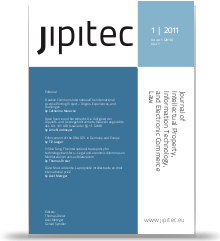Interoperability in the Digital Economy
Keywords:
Interoperability, communication networks, digital economy, digital goods, platforms, standardsAbstract
Interoperability has become a buzzword in European policy debates on the future of the digital economy. In its Digital Agenda, the EU Commission has identified a lack of interoperability as one of the significant obstacles to a thriving digital economy. The EU Commission and a number of other actors have advocated far-reaching policies for ensuring the interoperability of digital goods, services, platforms and communication networks. In this paper, we present a systematic framework for discussing interoperability problems from an economic and legal perspective and apply it to several interoperability issues such as, e.g., standardization, interoperability regulation in the field of electronic communication, duties of dominant firms (including platforms) to ensure horizontal and vertical interoperability and IP law exceptions in favor of interoperability. The complex trade-offs between benefits and costs of a higher degree of interoperability suggest the need for a careful and separate analysis of each specific interoperability issue, caution regarding a (top down) imposition of mandatory standards and interoperability obligations, and a greater focus on unilateral solutions of interoperability problems, such as adapters or converters. Within the framework of Art. 102 TFEU, EU competition law may be better advised to develop a workable test to address hurdles for unilateral interoperability solutions created by dominant firms, than to continue focusing on the essential facilities doctrine to mandate interoperability.Downloads
Published
2017-04-10
Issue
Section
Special Issue on Contracts on Digital Goods and Services




